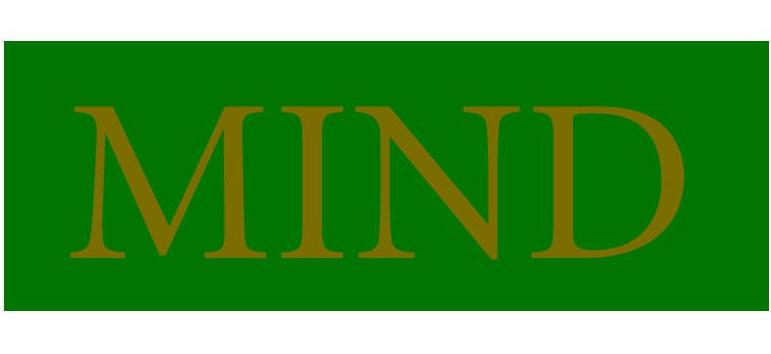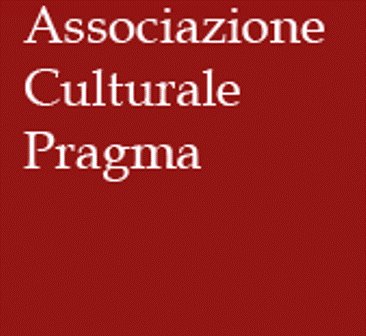2nd Young Scholars Pragmatism Conference
Inquiry, Science, Truth
Hybrid Conference
11-12 October 2021
Darwin College, University of Cambridge and Online
Keynote speakers
Cheryl Misak, University of Toronto
Hasok Chang, University of Cambridge
Recordings available
Recordings of the talks are available on a dedicated Google Drive. If you would like to have access to the recordings, click on the button below to send your request. Access is granted individually.
Abstracts
Keynotes
Cheryl Misak (University of Toronto): 'A New History and Underpinning for Conceptual Engineering'
The traditional account of concepts has it that concepts have necessary and sufficient conditions—definitions that nail down their meaning. Russell and Moore in the early 1900s established the method of conceptual analysis as the way of doing philosophy. Take a concept and analyse it into its elementary components. You will have then unpacked its meaning and achieved conceptual clarity. The later Wittgenstein and the later Carnap are thought to have been the first to challenge this position. They are considered the first conceptual engineers. Wittgenstein argued that we must look beyond an analysis of the concept to the contingent facts that explain its formation and give it its point. Carnap argued that we choose the framework or language in which concepts reside and we explicate those concepts.
My aim is to show that this popular narrative is inadequate. A more substantial and accurate history of conceptual engineering—the idea that we can revise our concepts—takes us back to the founder of pragmatism, C.S. Peirce, in the 1870s. No pragmatist thinks that the conceptual engineering (or re-engineering) movement is revolutionary. It was always there, in the pragmatist tradition, ready for the taking. And if we return to Peirce and his pragmatist successors C.I. Lewis, Frank Ramsey, and Arthur Pap, we will find important insights for today’s conceptual engineer.
Hasok Chang (University of Cambridge): 'Pragmatism as Relentless Empiricism'
I propose an interpretation of pragmatism as a thorough and relentless kind of empiricism. Under this interpretation, pragmatism is a philosophical stance that takes experience as the only ultimate source and ground of any kind of learning and knowledge, and takes experience in its full sense as the lived experience of active knowers, not just information gathered through the ‘five senses’. For pragmatists, empirical learning includes not only the collecting of facts and the testing of theories, but also the crafting of appropriate concepts (including metaphysical ones), and the development of effective methods (even the choice of appropriate logical axioms).
Pragmatist philosophers are often concerned with clarifying the meanings of concepts in terms of their practical implications. More broadly, however, pragmatism should be a philosophy that concerns itself with the study and improvement of practices. In the context of epistemology and philosophy of science, pragmatists need to understand and assess knowledge in the context of action. This orientation points to the conception of knowledge as ability, which I am developing under the banner of ‘active knowledge’, and the maximal pursuit of knowledge, which I advocate as ‘activist realism’. The interpretation of pragmatism I propose is primary intended as a tool for the reform of philosophy of science, but it is also offered as a suggestive contribution to the revival of pragmatism in other areas, too.
Young scholars
Claudia Cristalli (Indiana University Bloomington): 'On the Notion of “Social Impulse.” Integrating Perception in Peirce’s Account of Truth'
The present contribution brings Peirce’s theory of perception to bear on his epistemology, as expounded in early epistemological papers of 1877-8. In “The Fixation of Belief” and “How to Make Ideas Clear” Peirce famously identified truth as what resists us and is independent of us (W3: 254; 271) and as the final agreement of the community of inquirers (W3: 250; 284). My claim is that, by looking at Peirce’s theory of perception, we can better understand his appeal to the social dimension of our mechanisms for settling belief without fear of reducing the pragmatist account of truth to that very mechanism. Pragmatism is also about rejecting privileged or absolute points of view, and revisiting Peirce’s theory of inquiry in light of his theory of perception challenges the privileged epistemic position of first-person accounts while maintaining a realist account of truth at the social level.
Josh Hunt (University of Michigan): 'Norms to Explain By: An Expressivist Account of Scientific Explanation'
Accounts of scientific explanation disagree about what's required for a cause, law, or other ontic structure to be a reason why an event occurs. In short, they disagree about the conditions for explanatory relevance. Nonetheless, most accounts presuppose that explanatory relevance is settled by worldly facts of the matter. I argue that this descriptivist assumption should be rejected: it leads to questions that distract us from understanding the role explanatory reasoning plays in science. Instead, I develop an expressivist account of explanatory relevance based on Gibbard's norm-expressivism about rationality. My account rescues explanatory irrealists from the dilemma of choosing between realism and relativism about explanatory relevance. Ethical expressivists have extensively defended their position from relativism, and I adapt these defenses to expressivism about scientific explanation. By vindicating ordinary scientific practice, my account rehabilitates an irrealist and pragmatist conception of explanation.
Mahmoud Jalloh (University of Southern California): 'Scientific Polysemy, Semantic Detoxification, and Sophisticated Operationalism'
Two commonplace phenomena of scientific practice have been taken to challenge operationalism. I provide a version of operationalism that, in fact, explains these phenomena: scientific polysemy and semantic detoxification. Scientific polysemy is generated by cases of theoretical change as well as “semantic extension” which occurs in the usage of old terminology in new experimental regimes. Semantic detoxification follows semantic extension; it is a reconciliation of novel and past usages. The new usage takes priority over older uses in the novel context, correcting and circumscribing old usages in their native contexts. Focusing on the case of quantity terms, I present a holistic operationalism that explains both phenomena: Multiple meanings arise because of differences in the relation of some quantity to other quantities; Multiple meanings are unified into one term because the functional roles determined by these meanings all share analogous positions in the different contexts, specified by the quantity’s dimensionality.
Rory Kent (University of Cambridge): 'Feyerabend’s Leninism and the ‘Pragmatist Philosophy’: Towards a Realpolitiks of Science'
I argue that Feyerabend’s engagements with Lenin and other revolutionary Marxists can be made sense of in relation to his ‘pragmatic philosophy’ of research traditions. In Feyerabend’s presentation, revolutionaries typically adopt a pragmatic stance towards science, treating it not as an absolute constituent of thought and action but as a contingently powerful means to practical ends. This places Feyerabend’s thought at a rather peculiar intersection, i.e., one at which the Marxist and pragmatist traditions meet. The programme for the talk is as follows. First, I present Feyerabend’s pragmatic philosophy, clarifying his distinction between ‘participant’ and ‘observer questions’, as well as his conception of ‘opportunism’. Next, I show that Feyerabend’s citations of revolutionary Marxists reveal the sense in which, on his reading, they exemplify a pragmatic attitude towards science. Finally, I bring Feyerabend’s pragmatic philosophy into dialogue with Raymond Geuss’s neo-Leninism in order to elaborate a Feyerabendian Realpolitik of science.
Soroush Marouzi (University of Toronto): 'Intelligent Habits'
Gilbert Ryle was neither an intellectualist, nor an anti-intellectualist. His epistemology and philosophy of action were centered around two important distinctions: one between knowledge-that and knowledge-how, and the other between habit and intelligence. While the intellectualist does not respect the former distinction, the anti-intellectualist does not respect the latter. I shall argue that while Ryle’s account of knowledge is apt, his habit-intelligence distinction does not hold the water. To do so, I explore Frank Ramsey’s theory of judgement in the 1920s by placing it within the context of the then debates around intellectualism. Although Ramsey’s treatment of hypotheticals brought him close to the Rylean account of knowledge, he held that intelligence is always constitutive to the operation of habits. Ramsey provided us enough hints to show that an action guided by mere habits leads to the paralysis of action as it fails to resolve the reference class problem in decision contexts.
Livio Mattarollo (National University of La Plata): 'Reconstruction of Continuities. John Dewey and the Role of Non-Epistemic Values in Scientific Inquiries'
In this paper I aim to identify John Dewey’s contributions to the current debate on the value-free science ideal. To achieve this goal, I reconstruct different senses of continuity between his notions of experience, inquiry, and valuation. Firstly, I reconstruct continuity between inquiry and context as well as between genesis and validity of knowledge. Secondly, I reconstruct both methodological and material continuity between inquiry and valuation. Thirdly, I reconstruct continuity between means and ends. Taking this into account, I claim that Dewey’s main contributions to the above-mentioned debate are mainly three: (i) a broad idea of inquiry that includes non-epistemic values as constitutive and legitimate elements; (ii) a naturalistic, cognitivist, and “science-laden” conception of values; and (iii) a strong commitment to evaluate the ends and values of science, for its humanistic quality depends on them. Finally, I suggest that Dewey offers solid philosophical grounds towards a political philosophy of science.
Parysa Mostajir (University of Chicago): 'A pragmatist integration of ethics and epistemology without relativism'
Ethical values have usually been conceived as having a distinct teleological foundation to epistemological norms—the former guide human conduct and the latter represent a mind-independent world. In the pragmatist tradition, epistemic methods are instead framed as habitual assumptions selectively evolved from repeated past applications and successes in solving problems. Epistemic inquiry’s proper function is therefore to resolve problems in human life by making possible successful transformations or navigations of that world according to needs and desires. This means that the function of epistemic norms are simultaneously ethical ones, since they lead not to detached representations of a static world, but to instruction-manuals for successfully engaging with that world. What constitutes “successful” engagement is an irreducibly ethical question, dissolving absolute metaphysical distinctions between ethical and epistemic norms. However, because epistemic norms are grounded in practical human abilities to navigate an environing world (not to merely represent it), pragmatist epistemology avoids truth-relativism.
Andrew Tyler Richmond (Columbia University): 'A Pragmatic Approach to Representational Explanation'
Cognitive science understands the brain in representational terms. E.g., it explains spatial navigation by appealing to the spatial properties the hippocampus represents. Philosophers of science interested in this form of explanation try to understand it by defining representation, or giving a metaphysics of it — a theory of what it is to represent. I distinguish that approach from the pragmatic approach. The pragmatic approach has the same goals as the traditional approach: explaining how representational explanation works and why it is successful, and understanding its epistemic foundations. But instead of looking for a metaphysics of representation, the pragmatic approach investigates the role of representational notions in the explanatory economy of science — what they help scientists do or explain, and how they support the goals of cognitive science more generally. This approach is motivated by a naturalistic, pragmatic understanding of science, and makes new connections between philosophy and neuroscience.
Henrik Sova (University of Tartu): 'What is Global Pragmatism?'
I argue that one of the central thesis of global pragmatism (or global expressivism) should be the following claim:
(GERsem) There is no semantic term t such that the best explanation of t’s meaning and use requires treating t as representational.
It means that semantic terms (‘true’, ‘refer’, ‘mean’, ‘represent’) do not represent the environment, but get a non-representational treatment (e.g. expressivist, inferentialist, or use theory of meaning). Thus, global pragmatists endorse a non-representational meta-semantics.
GERsem is a good definition for global pragmatism because it accommodates the correspondence intuition while maintaining the idea of global non-representationalism. Correspondence intuition is accommodated by the fact that GERsem allows for non-semantic terms that are best treated as representational (e.g. discourses about ordinary objects). However, in a non-representational meta-semantics, all representational discourses are deflated. This feature contrasts global pragmatists with representationalists.
Programme
Day 111 October 2021 |
|
10:00 BST, 5:00 EST Welcome
|
|
10:30 BST, 5:30 EST Keynote lecture: 'Pragmatism as Relentless Empiricism'Hasok Chang (University of Cambridge) |
|
12:00 BST, 7:00 EST Lunch Break |
|
13:00 BST, 8:00 EST 'Scientific Polysemy, Semantic Detoxification, and Sophisticated Operationalism'Mahmoud Jalloh (University of Southern California) |
|
14:00 BST, 9:00 EST 'On the Notion of “Social Impulse.” Integrating Perception in Peirce’s Account of Truth'Claudia Cristalli (Indiana University Bloomington) |
|
15:00 BST, 10:00 EST Break |
|
15:30 BST, 10:30 EST 'A Pragmatic Approach to Representational Explanation'Andrew Tyler Richmond (Columbia University) |
|
16:30 BST, 11:30 EST 'Norms to Explain By: An Expressivist Account of Scientific Explanation'Josh Hunt (University of Michigan) |
|
17:30 BST, 12:30 EST Break |
|
18:00 BST, 13:00 EST 'Intelligent Habits'Soroush Marouzi (University of Toronto) |
Day 2
12 October 2021 |
|
10:00 BST, 5:00 EST Feyerabend’s Leninism and the ‘Pragmatist Philosophy’: Towards a Realpolitiks of ScienceRory Kent (University of Cambridge) |
|
11:00 BST, 6:00 EST 'What is Global Pragmatism?'Henrik Sova (University of Tartu) |
|
12:00 BST, 7:00 EST Lunch Break
|
|
13:00 BST, 8:00 EST 'Reconstruction of Continuities. John Dewey and the Role of Non-Epistemic Values in Scientific Inquiries'Livio Mattarollo (National University of La Plata) |
|
14:00 BST, 9:00 EST 'A pragmatist integration of ethics and epistemology without relativism'Parysa Mostajir (University of Chicago) |
|
15:00 BST, 10:00 EST Break |
|
15:30 BST, 10:30 EST Keynote lecture: 'A New History and Underpinning for Conceptual Engineering'Cheryl Misak (University of Toronto) |
|
17:00 BST, 12:00 EST Concluding remarks |
Registration
The conference will take place in the Old Library in Darwin College, Cambridge and online (Zoom).
IN PERSON
There is a limited number of places available. Registration
is only guaranteed to the first 15 persons who sign up. After this
number is reached, you will be placed on a waiting list.
Deadline for registering in person: 3/10/21
ONLINE
No limits on the number of registrations. You will receive the Zoom link shortly before the conference.
Click here to register
Call for Abstracts
Deadline: 15 may 2021
We invite submissions of abstracts for the second edition of the Young Scholars Pragmatism Conference. It will be a hybrid event with online and in-person talks (20-mn presentation / 25-mn discussion).
While pragmatist ideas and methods are present in a great variety of academic fields and subfields, pragmatism started as a theory of meaning and inquiry (Peirce, James, Dewey), and became (in)famous as a theory of truth. This conference seeks to explore these fundamental themes running from the beginnings of pragmatism to the present. Possible topics for submission include (but are not limited to):
Meanings and concepts: what are our concepts for? How should we construe the meaning of our terms? How are concepts formed, and how do they evolve?
The theory of inquiry and scientific or logical methods: is there a scientific method? What is (or are) the method(s) of inquiry? How do we evaluate these methods?
Scientific practice: what does the study of scientific practice teach us about traditional issues in philosophy of science and about the theory of inquiry?
Values: is there a fact/value dichotomy? What role do values, purposes and normative assessments play in epistemic practices?
Truth and warranted assertibility: can truth be a goal of inquiry? How should it be defined? Can truth transcend experience or inquiry?
(Anti-)realism and (anti-)representationalism: do ideas and theories purport to represent the world? How should global expressivists or anti-representationalists think about theories of inquiry and the philosophy of science?
We welcome presentations of various forms, such as: theoretical papers defending pragmatist accounts of X; historical, sociological or philosophical case studies from a pragmatist perspective; studies of classical pragmatist answers to contemporary problems in philosophy of science, epistemology, or philosophy of language; exploration of pragmatist themes present in the philosophy of science of non-(explicitly) pragmatist authors; critical assessments of the scope and limits of pragmatism.
Submission guidelines:
Conditions for submission: graduate (masters and doctoral) students and early career scholars (up to 5 years after the completion of the PhD)
Word limit: 500 words
Format: PDF prepared for blind review
Include a separate document with your name, contact information, title of your abstract, and current academic position. You are also welcome to state your preference for presenting online or in person.
Deadline for submission: 15 May 2021
Notification of acceptance: 7 June 2021
Please send your documents to Céline Henne (cllh2@cam.ac.uk) and Oscar Westerblad (ow259@cam.ac.uk) by 15th May 2021, with subject line “YSPC Abstract”.
Organisation & Programme Committees
Céline Henne (Cambridge), Oscar Westerblad (Cambridge), Miguel Ohnesorge (Cambridge), Sarah Hijmans (Paris 7 Diderot), Bobby Vos (Cambridge)


